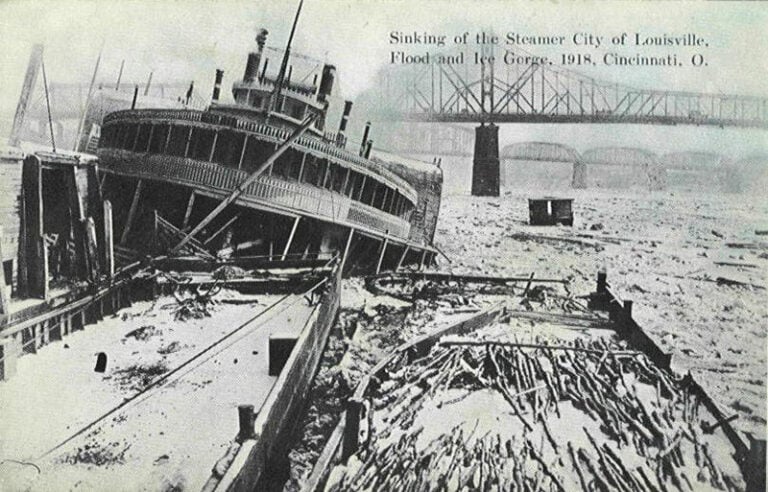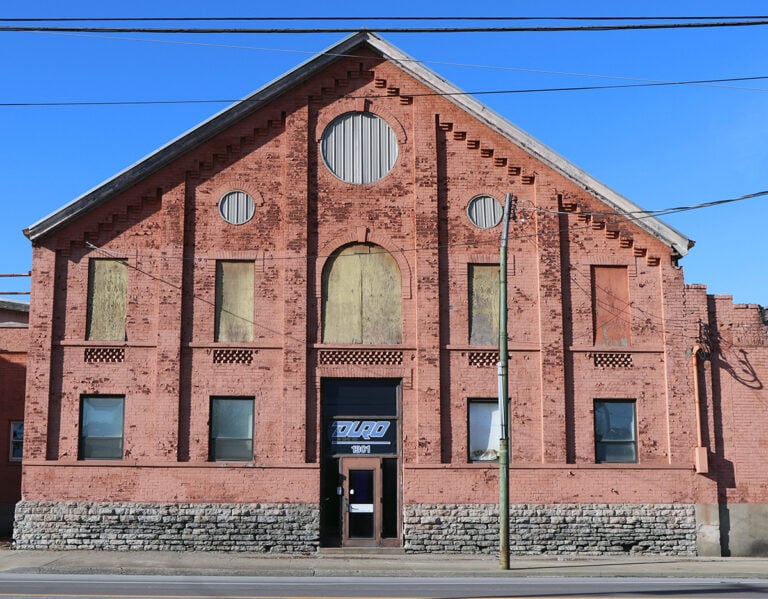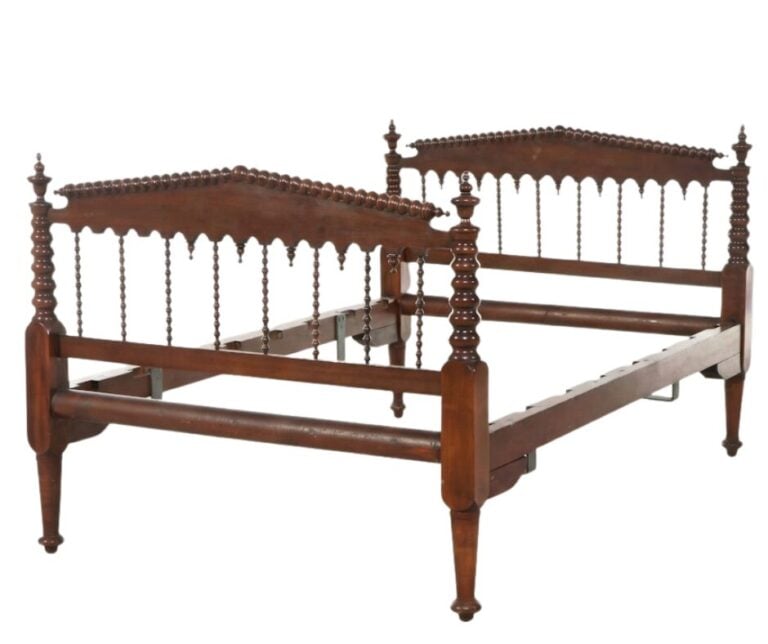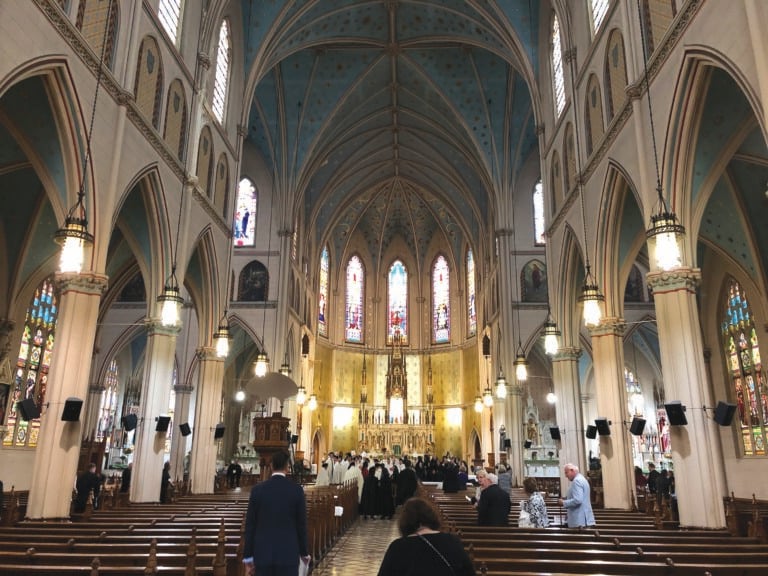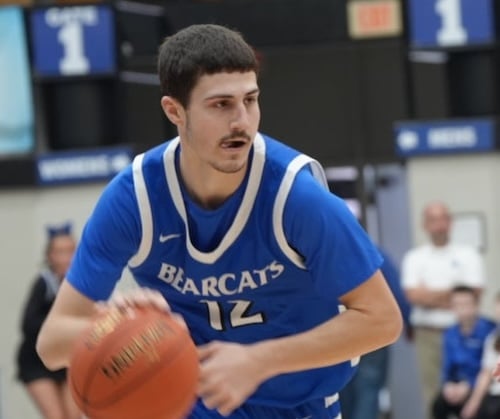By Mark Neikirk
Northern Kentucky University
A new, short video about an exhibit at the Behinger-Crawford Museum is one of three designed to help Kentucky teachers teach Black history and culture. More videos are in production, and together they will provide teachers with a portfolio of visual resources for classroom use.
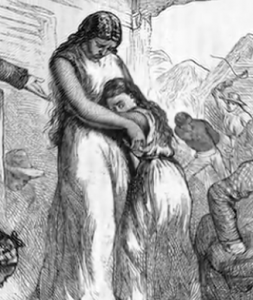
The video filmed at the Behringer-Crawford is about the Devou Part museum’s Pullman Porters exhibit. The story is told by Cordell George – who, as a Northern Kentucky University public history student, helped to design the exhibit.
As the 19th Century ended and the 20th Century dawned, the porters – Black men – provided service to patrons on luxury rail cars. It was solid employment, though with limitations.
“I think of a double-edge sword when I think of the Pullman Porters,” George says in the video.
“On one end, it means a rise in economic stability. For the first time in history, Blacks were able to send their kids to college. They were able to get heavily involved in the American political arena. The Pullman Porters was the first African American trade union…. But on the other hand, it meant long hours, really hard work, sometimes humiliating work.”
The exhibit fits well into the museum’s overall story of Northern Kentucky, which includes how transportation affected settlement, development, and culture.
“We have exhibits on riverboats, the airport, streetcars. Transportation has helped shaped our region, so its story is our story. Try to imagine Northern Kentucky without Interstate 75 or without CVG,” said Behringer-Crawford Executive Director Laurie Risch.

“The railroads, and the Pullman Porters, are part of the story, too, but the Pullman story is much more than a transportation story.”
The video was produced by NKU NorseMedia students for the Thomas D. Clark Foundation’s Teaching Black History & Culture: A Guide for Educators initiative. It’s a new effort to provide Kentucky primary, middle and high school teachers with classroom-ready resources to teach Black history and culture.
“In 2020, a trying year for our nation, we turned our attention to the new tumult over race in America. The unjust deaths of George Floyd and Breonna Taylor could not be ignored – especially given that one of the tragedies unfolded in our Commonwealth,” said Ginni Fox, president of the Thomas D. Clark Foundation Board of directors.
“We wanted to contribute to our nation’s healing. So we asked: How might our Foundation be part of a different future?”
The answer would have to align with the Clark Foundation’s mission, which is to support the University Press of Kentucky, the scholarly publishing house for Kentucky’s public universities (including NKU) and many of the private universities as well. Although the Press publishes on a wide variety of topics, it has a focus on scholarship about Kentucky. The story of Black history and culture is significant to the overall story, and the Press has published numerous books on those topics – including, in 2015, the Kentucky African American Encyclopedia.
“Our Foundation exists first and foremost to support the University Press, which is tremendously important in Kentucky to celebrate and disseminate scholarship,” Fox said.
“What we wanted to do is be purposeful and proactive in making certain Black history and culture is part of that larger effort.”
With that in mind, the Clark Foundation last summer launched the initiative to support teachers with resources they could use. An early step was to ask teachers what resources would help. One answer was short videos – five to ten minutes — that they could show in the classroom as discussion prompts.

With advice from experts (teachers, college professors, superintendents), the Foundation found some videos already made and curated them for classroom use. But the Foundation also commissioned NorseMedia students to make new mini-documentaries that teachers could use. The students focused on stories and places in Kentucky.
NorseMedia employs NKU students seeking to build their media creation skills. The students create documentaries, short films, promotional and informational programs for local nonprofit organizations and campus partners.
“This project is a great opportunity for our students to contribute to the betterment of the Commonwealth while putting what they learn in the classroom to use for the community,” said Chris Strobel, an NKU professor of Electronic Media and Broadcasting, who worked with the students on the Clark Foundation videos.
“This past year, as remote communication like Zoom has expanded how we treat the office and the classroom, we have looked at how to improve the quality of that communication This project allowed our students to employ their traditional media production skills in new ways.”
The first three videos were unveiled at an online workshop for teachers on Jan. 18 – Martin Luther King Day Jr. – attended by about 300 people, mostly educators and with tech support from NorseMedia. The Behringer-Crawford exhibit was one of the three. The other two included:
• A mini-doc on the Boone County Public Library’s exploration of the Black experience locally, African American of the Kentucky Borderlands.
• A min-doc on the lynching exhibit at the SEEK Museum in Russellville, Ky.
All three videos are available for viewing here.
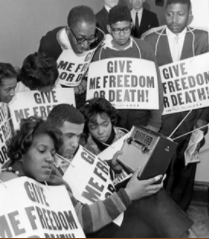
The videos already made, and those to come, represent one aspect of the larger effort to give Kentucky teachers easy access via a new website to classroom resources.
In addition to the videos, the new website has reading lists, lesson plans, and access to recordings of two workshops, one last summer the other this year on MLK Jr. Day. The workshops were designed to introduce resources for teaching Black history and culture, and how to use those resources. Teachers can still attend the workshops. They are available as online, on-demand experiences.
Mark Neikirk is the executive director of the Scripps Howard Center for Civic Engagement at Northern Kentucky University and a board member and past president of the Thomas D. Clark Foundation.











